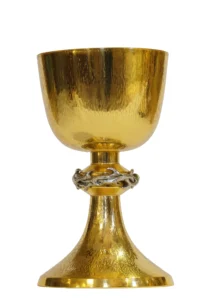Wine has been deeply woven into human history for thousands of years, and the Bible is no exception. From moments of celebration to warnings against excess, wine is mentioned frequently throughout Scripture. It carries symbolic meaning, illustrates spiritual truths, and reflects the everyday life of biblical times. Let’s explore the role and significance of wine in the Bible.
Wine as a Gift and Blessing
In many passages, wine is depicted as a blessing from God — a symbol of abundance, prosperity, and joy. Psalm 104:14–15 describes God providing “wine that gladdens human hearts,” highlighting its role in feasting and celebration. Similarly, in Deuteronomy 7:13 and Amos 9:14, wine is included in the imagery of God’s blessings on the land and His people.
Wine was a staple of the ancient diet, often safer to drink than water, and represented God’s provision. A full harvest of grapes and plentiful wine was a sign of favor and divine blessing.
Wine in Worship and Sacrifice
Wine also held a place in Israel’s worship practices. In the Old Testament, wine was used in drink offerings, poured out before the Lord alongside sacrifices (Exodus 29:40, Numbers 15:5–10). It symbolized devotion, gratitude, and consecration.
This idea of being “poured out” would later be echoed by the Apostle Paul, who described his life of ministry as a drink offering (Philippians 2:17).
Wine as Joy and Fellowship
The Bible often connects wine to joy and celebration. The first miracle of Jesus at the wedding in Cana (John 2:1–11) involved turning water into wine, reinforcing wine’s place in communal festivity. This event symbolized not only joy but also the abundance and new covenant that Jesus brought.
Wine also appears in the imagery of God’s kingdom. In Isaiah 25:6, the prophet describes a future feast prepared by the Lord, featuring “aged wine — the best of meats and the finest of wines.” This vision points to eternal joy and fellowship with God.

Wine as a Symbol of Covenant
Perhaps the most significant New Testament reference is at the Last Supper. Jesus used wine as a symbol of His blood, shed for the forgiveness of sins (Matthew 26:27–28). This moment established wine as a central element of Christian worship in Communion, representing the new covenant between God and His people.
Warnings Against Excess
While wine was often portrayed positively, the Bible also contains many warnings about overindulgence. Proverbs 20:1 cautions that “wine is a mocker and beer a brawler,” reminding believers that drunkenness leads to folly and destruction. The New Testament reinforces this warning in Ephesians 5:18, urging Christians to be filled with the Spirit rather than with excess wine.
The contrast here is important: wine can bring joy, but misuse can lead to downfall. The message is balance, wisdom, and self-control.
Wine as Judgment
Interestingly, wine also carries imagery of God’s judgment. Prophets like Jeremiah and Isaiah describe nations drinking the “cup of God’s wrath” (Jeremiah 25:15, Isaiah 51:17). Revelation continues this theme, using wine to represent God’s righteous anger poured out on the world (Revelation 14:10).
This duality shows the depth of wine’s symbolism — it can represent both blessing and judgment, joy and consequence.
Conclusion
Wine in the Bible is rich in symbolism, spanning themes of joy, covenant, sacrifice, and even judgment. It was an everyday element of life in the ancient world, but in Scripture it points to greater spiritual realities. From the vineyards of Israel to the cup at the Last Supper, wine reminds us of God’s provision, His covenant love, and the call to live in balance and faith.
Whether as a blessing in celebration or as a warning against excess, the biblical imagery of wine continues to hold deep meaning for believers today.
Want to Explore Our Wines.
OneGrape wines cover a wide range of tastes and occasions.
Visit our shop today to order your specially selected wines.


